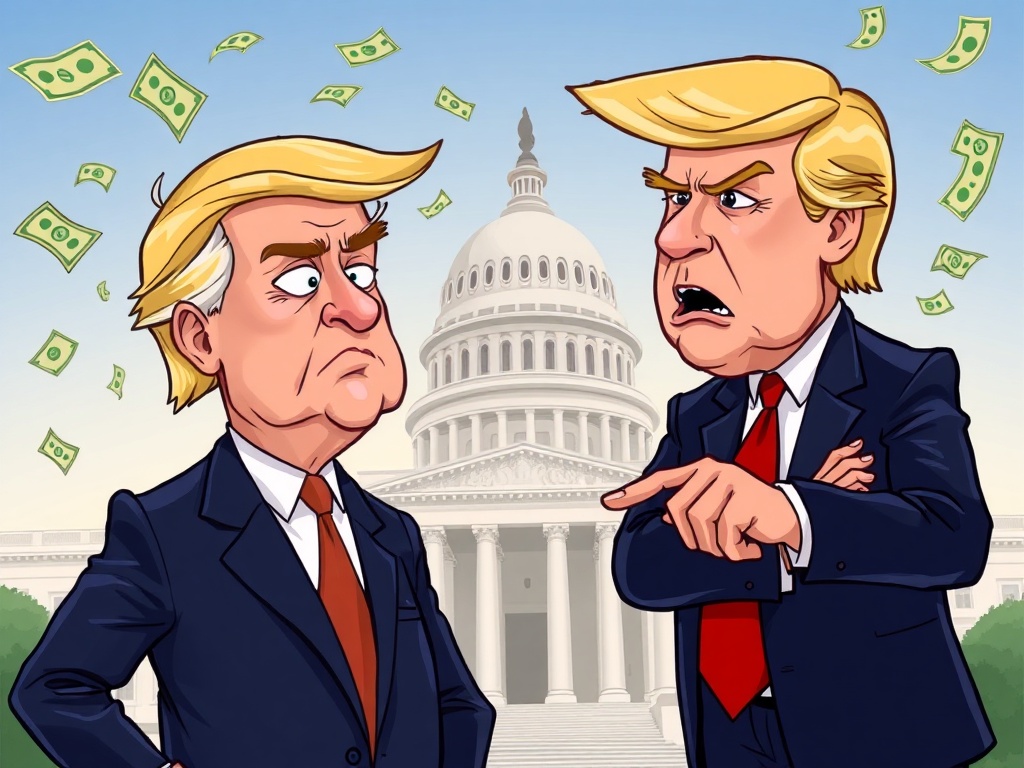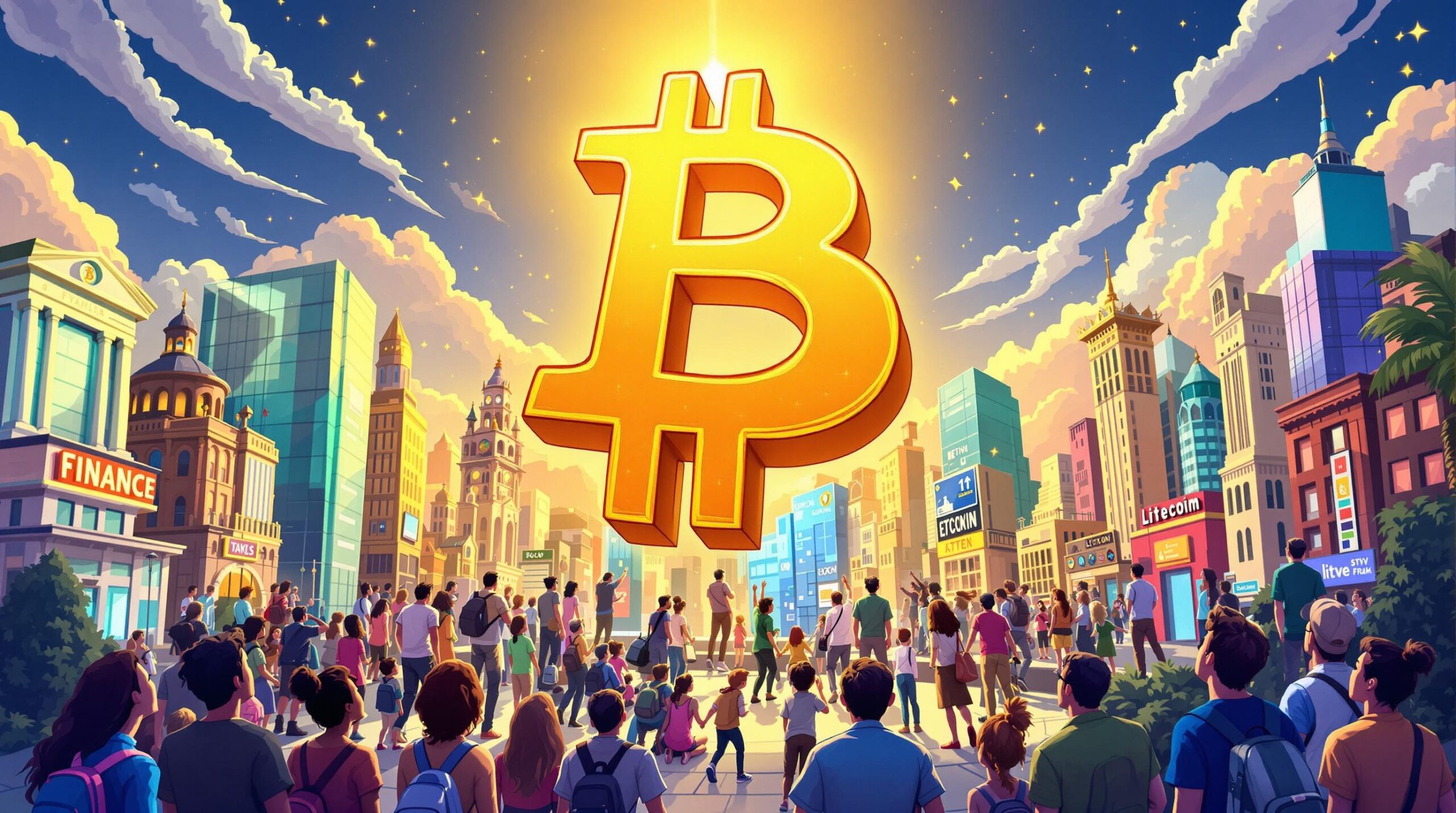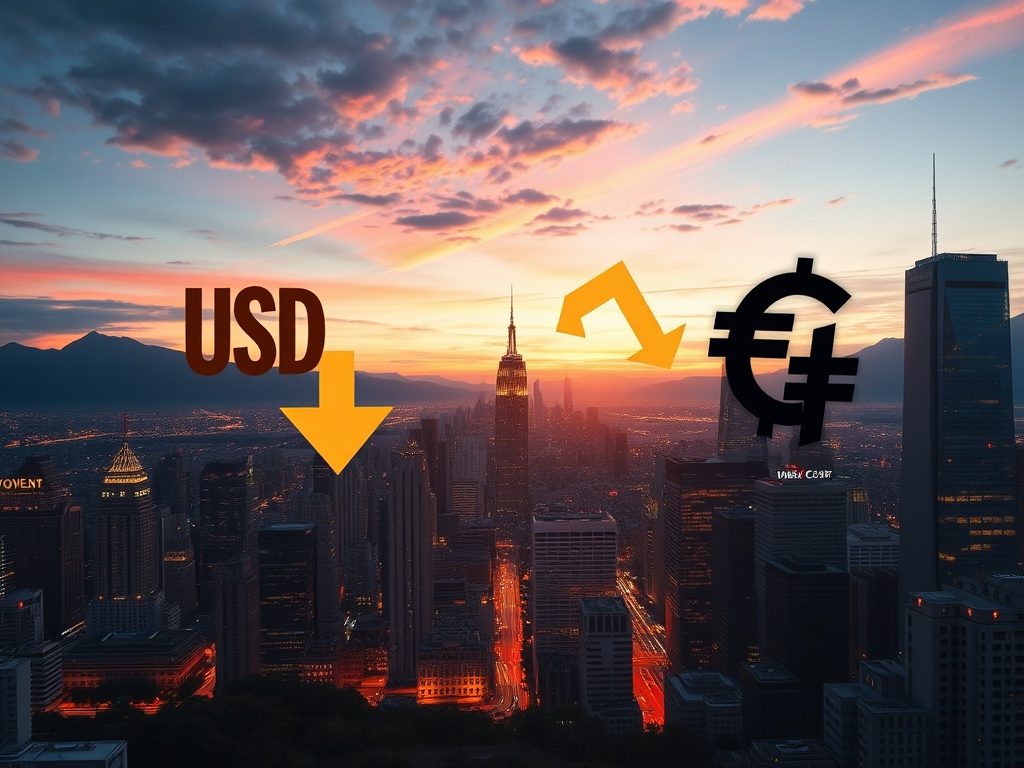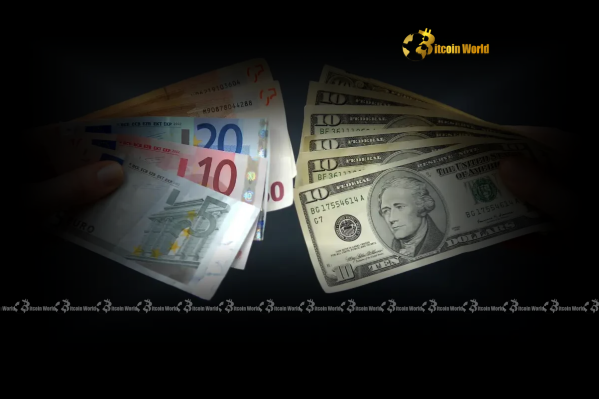BitcoinWorld

Federal Reserve Under Fire: Trump’s Explosive Critique of Powell’s Leadership
In a dramatic turn of events that has sent ripples across financial markets and political circles, former U.S. President Donald Trump has launched an explosive broadside against Federal Reserve (Fed) Chair Jerome Powell. Taking to his Truth Social platform, Trump didn’t mince words, labeling Powell as “too late, too angry, too stupid & too political” and asserting that his leadership is directly costing the United States “trillions of dollars.” This scathing critique, coupled with an unusual jab at a “corrupt renovation” project, underscores the intense scrutiny faced by the Federal Reserve and its pivotal role in the nation’s economic stability.
What’s Behind Trump’s Fiery Federal Reserve Critique?
Donald Trump’s recent comments are not just casual remarks; they represent a significant escalation in his long-standing tension with Jerome Powell and the institution he leads. During his presidency, Trump frequently criticized Powell, particularly over interest rate decisions, advocating for lower rates to stimulate economic growth. This latest outburst, however, goes beyond policy disagreements, delving into personal attacks and accusations of incompetence and even corruption.
- Accusations of Incompetence: Trump’s primary claim is that Powell is “too late” in his actions, implying a failure to address economic challenges effectively or promptly. This often refers to the Fed’s response to inflation, which surged dramatically post-pandemic.
- Economic Costs: The assertion that Powell is costing the country “trillions of dollars” is a bold claim. While difficult to quantify precisely, this likely refers to the erosion of purchasing power due to inflation, the increased cost of borrowing for the government and private sector, and potential misallocation of capital under current economic conditions.
- Political Bias: Labeling Powell as “too political” suggests a belief that the Fed’s decisions are influenced by political agendas rather than purely economic data, a charge that central banks globally strive to avoid.
- Unusual Allegations: The reference to “one of the most incompetent, or corrupt, renovations of a building” adds a peculiar, yet characteristic, dimension to Trump’s critique, hinting at broader dissatisfaction beyond monetary policy.
The Federal Reserve’s Mandate: A Balancing Act in Turbulent Times
To understand the weight of Trump’s criticism, it’s essential to grasp the fundamental role of the Federal Reserve. As the central bank of the United States, its primary mandate is to foster maximum employment and price stability. This dual objective often requires delicate balancing acts, especially during periods of economic uncertainty. The Fed utilizes various tools, primarily setting the federal funds rate, to influence economic activity, manage inflation, and stabilize financial markets.
Since the onset of the COVID-19 pandemic, the Federal Reserve has faced unprecedented challenges:
| Challenge | Fed’s Response | Criticism Context |
|---|---|---|
| Surging Inflation | Aggressive interest rate hikes (2022-2023) | Trump’s “too late” argument suggests earlier, more decisive action was needed. |
| Economic Downturn (2020) | Rapid rate cuts, quantitative easing | Accused of overstimulating, leading to later inflation. |
| Global Supply Chain Disruptions | Monetary policy cannot directly fix supply issues. | External factors complicate the Fed’s ability to control prices solely through demand-side measures. |
The ‘Too Late’ Argument: Analyzing Monetary Policy Timing
The accusation that the Federal Reserve was “too late” in addressing inflation is a common one among critics. For much of 2021, the Fed maintained that rising inflation was “transitory,” a byproduct of supply chain disruptions and pent-up demand following pandemic lockdowns. However, as inflation proved more persistent, the Fed began its aggressive rate-hiking cycle in early 2022.
Monetary policy operates with significant lags, meaning the full effect of interest rate changes might not be felt for 12 to 18 months. This inherent delay makes it incredibly challenging for central bankers to perfectly time their interventions. Critics argue that the Fed waited too long to acknowledge the permanence of inflation, allowing it to become entrenched. Supporters, however, contend that an earlier, more aggressive tightening could have stifled a fragile economic recovery and potentially pushed the U.S. into a deeper recession.
Economic Fallout: Are Trillions Really at Stake for the U.S. Economy?
The claim of “trillions of dollars” in losses is staggering and warrants closer examination. While a precise figure is speculative, the economic costs associated with high inflation and subsequent aggressive monetary tightening are substantial. Here’s how such a figure might be conceptualized:
- Erosion of Purchasing Power: Inflation directly reduces the value of money. Over time, high inflation can significantly diminish the purchasing power of savings and incomes, effectively costing households and businesses trillions collectively.
- Increased Borrowing Costs: As the Fed raises interest rates to combat inflation, the cost of borrowing for everything from mortgages and car loans to government debt skyrockets. This can add hundreds of billions, if not trillions, to the national debt servicing costs and household expenses over several years.
- Misallocation of Capital: Periods of high inflation and uncertain interest rates can lead to inefficient allocation of capital, as businesses and investors struggle to make long-term decisions, potentially hindering productivity and growth.
- Impact on Asset Values: Higher interest rates can depress asset valuations, including stocks, bonds, and real estate, leading to significant paper losses for investors.
While the “trillions” figure is an estimate, it reflects a genuine concern about the economic burden placed on the American populace and the national balance sheet by inflationary pressures and the subsequent policy responses from the Federal Reserve.
Political Rhetoric vs. Economic Reality: A Delicate Dance for the Federal Reserve
The relationship between political figures and central banks is always a delicate one. Central bank independence is widely considered crucial for effective monetary policy, shielding decisions from short-term political pressures. However, public commentary from influential figures like Donald Trump can undoubtedly impact public perception and market sentiment.
When a former president with a significant following levels such strong accusations against the Federal Reserve Chair, it can:
- Undermine Confidence: erode public trust in the institution’s ability to manage the economy impartially and competently.
- Increase Volatility: introduce uncertainty into financial markets, as investors react to the potential for future political interference or changes in economic leadership.
- Shift Policy Debates: push economic discussions into the political arena, potentially complicating the Fed’s efforts to communicate its policy rationale clearly.
Maintaining a clear distinction between political discourse and sound economic policymaking is vital for the stability of the U.S. economy and the global financial system.
Navigating Economic Headwinds: What Does This Mean for You?
For everyday Americans and participants in financial markets, including the cryptocurrency space, understanding these macro-economic dynamics is crucial. While Trump’s comments are specific to the Federal Reserve and its leadership, they highlight broader concerns about inflation, interest rates, and the overall health of the U.S. economy. Here are some actionable insights:
- Stay Informed: Keep abreast of economic indicators (inflation rates, employment data, GDP growth) and Federal Reserve announcements.
- Diversify Investments: In times of economic uncertainty and political rhetoric, a diversified investment portfolio can help mitigate risks.
- Understand the Fed’s Role: Recognize that the Fed operates under a dual mandate, and its decisions are complex, aimed at long-term stability rather than short-term political gains.
- Assess Your Personal Finances: High interest rates impact mortgages, loans, and savings. Review your financial strategy to adapt to changing economic conditions.
Conclusion: The Enduring Debate Over the Federal Reserve’s Role
Donald Trump’s blistering critique of Jerome Powell and the Federal Reserve serves as a potent reminder of the intense scrutiny faced by central bankers in a politically charged environment. While the former president’s language was undeniably harsh, his comments tap into broader public anxieties about inflation, economic stability, and the effectiveness of monetary policy. The debate over whether the Fed was “too late” or acted appropriately is ongoing, reflecting the inherent complexities of steering a massive economy through unprecedented challenges.
Ultimately, the health of the U.S. economy hinges on sound policy, clear communication, and public confidence. The dialogue initiated by Trump’s remarks, while controversial, highlights the critical importance of the Federal Reserve’s independence and its unwavering commitment to its dual mandate of maximum employment and price stability. As the nation continues to navigate economic headwinds, the performance and perception of the Federal Reserve will remain a central point of discussion and concern for all Americans.
Frequently Asked Questions (FAQs)
1. Who is Jerome Powell?
Jerome Powell is the current Chair of the Board of Governors of the Federal Reserve System. He was first nominated to the position by President Donald Trump in 2017 and later re-nominated by President Joe Biden in 2021.
2. What is the Federal Reserve’s primary role?
The Federal Reserve, often called the Fed, is the central bank of the United States. Its primary roles are to conduct the nation’s monetary policy to promote maximum employment, stable prices, and moderate long-term interest rates in the U.S. economy, and to ensure the stability of the financial system.
3. Why is Donald Trump criticizing the Federal Reserve?
Donald Trump has historically criticized the Federal Reserve, particularly Jerome Powell, over interest rate policies and their perceived impact on the U.S. economy. His recent criticisms stem from a belief that the Fed was too slow in addressing inflation and that its policies have cost the country trillions of dollars.
4. How do Federal Reserve policies impact the U.S. economy?
Federal Reserve policies, primarily through adjusting interest rates, directly impact borrowing costs for consumers and businesses, inflation rates, and the overall pace of economic growth. Higher rates can slow inflation but may also curb economic activity, while lower rates can stimulate growth but risk higher inflation.
5. Could political rhetoric affect financial markets?
Yes, political rhetoric, especially from influential figures, can significantly affect financial markets. Such comments can create uncertainty, influence investor sentiment, and potentially lead to market volatility, as investors react to perceived risks or opportunities.
Did you find this analysis insightful? Share this article with your friends, family, and on your social media platforms to spark a broader conversation about the future of the U.S. economy and the role of the Federal Reserve!
To learn more about the latest economic policy trends, explore our article on key developments shaping U.S. economic stability and future trends.
This post Federal Reserve Under Fire: Trump’s Explosive Critique of Powell’s Leadership first appeared on BitcoinWorld and is written by Editorial Team





